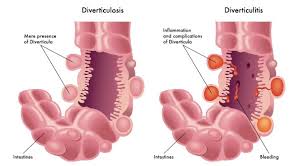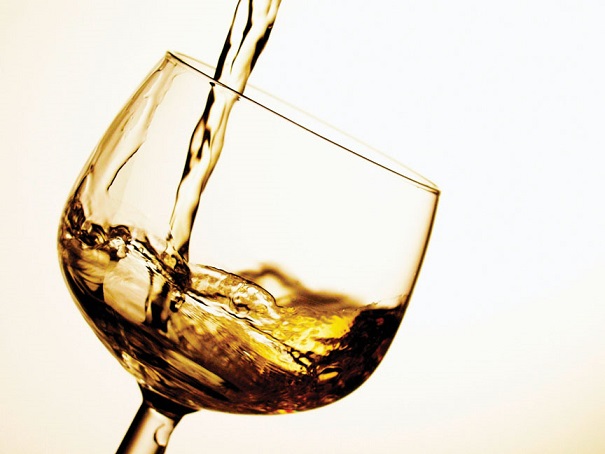Diverticula are the weak spots you develop in the lining of the large intestine. Diverticula can become inflamed because of trapped stool or bacteria. This inflammation is called diverticulitis. While the exact cause of diverticulitis is not clear, you are likely to develop these complications for not consuming enough fiber. Many people believe there is a connection between diverticulitis and alcohol. Is it true? Can you develop diverticular disease because of alcohol consumption?
Does Alcohol Intake Cause Diverticulitis?
There is no direct or certain connection between alcohol and diverticulitis, but some experts are of the view that alcohol may well be a factor contributing to the developing of this digestive condition. If you develop this condition, your doctor would advise you to avoid alcohol and other irritants for that matter because they can make flare-ups worse.


Alcohol and Poor Diet Together Can Cause Problem
It is important to mention that even though the connection between diverticulitis and alcohol is low, you may develop other problems due to alcohol that may increase your risk of developing this digestive condition. For instance, alcoholics usually pay little attention to their diet, and their poor eating habits can cause digestive problems. A lack of nutrition and fiber in your diet is usually the underlying cause of diverticulitis.
What it implies is that if you drink alcohol but also have a balanced diet, you are less likely to develop diverticulitis or another digestive problem for that matter. You do have an increased risk of developing diverticulitis if you drink alcohol and already have a family history of gastrointestinal complaints.
Avoid Alcohol with Diverticulitis
If you already have this condition, it is best to stay away from alcohol. At least, you should avoid drinking during an active flare-up or else your will experience bowel irregularity with severe pain. The idea is to give your digestive system some rest. For this, you have to stop drinking alcohol and eat whole foods rich in fiber, like fresh veggies and fruits. Whole grains may also help reduce inflammation and make you feel better.
Risk Factors of Diverticulitis
What causes diverticulitis is still not clear yet, but genetics play a big role in its development. Along with genetic factors, your diet can also increase your risk of developing this condition. Being on a low-fiber diet is usually the possible cause of diverticulitis. The condition is more common in elderly people with slower digestion. Here are some other possible risk factors:
- Obesity: You are at an increased risk of developing diverticulitis if you are seriously overweight. Morbid obesity requires more invasive treatments for this digestive condition.
- Smoking: You are at a greater risk of developing diverticulitis if you smoke cigarettes. Non-smokers are less likely to develop this condition.
- Lack of exercise: Having a sedentary lifestyle may also increase your risk of diverticulitis.
- Medications: People who take opiates, steroids, and non-steroidal anti-inflammatory drugs, such as ibuprofen are more likely to develop diverticulitis.
Can Stress Cause Diverticulitis?
Apart from the connection between diverticulitis and alcohol, similarly, many people believe that you can develop this condition if you stay under stress for a long time. That is true. Chronic stress can inflame the diverticula and lead to diverticulitis.
- When you are under stress, your body thinks it is an emergency and sends more blood to your brain and muscles. This limits the flow of blood to your immune and digestive system, which can disrupt digestion.
- When your body cannot digest the food you eat, you are more likely to develop digestive issues, including heartburn. Moreover, the fact that blood moves away from your digestive system is another reason why the diverticula become inflamed.
Follow a Diverticulitis Diet for Quick Relief
If you are dealing with diverticulitis, you can try a number of ways to improve your condition. With information about the connection between diverticulitis and alcohol, you should know that the first thing to do is stop your intake of alcohol. This will help offer some pain relief. Moreover, you need to pay attention to your overall diet. Your treatment will usually include antibiotics and a diverticulitis diet. Here is more about the diet.
Diet Details
You usually need to rely more on liquids for a few days. Some of the most common items included in a clear liquid diet include ice chips, broth, water, gelatin, ice pops without fruit pulp, and tea or coffee without cream. You can also enjoy fruit juices without pulp.
Once you start feeling better, you can then include low-fiber foods in your diet. Some of the most common options include the following:
- Fish, eggs, and poultry
- Cooked or canned fruits (without seeds and skin)
- Canned or cooked veggies
- White bread (refined)
- Low-fiber cereals
- Yogurt, milk, and cheese
- Pasta, white rice and noodles
You can also consume vegetable and fruit juice without including pulp.
Results
After taking your antibiotics and sticking to a diverticulitis diet, your condition will improve within 2-3 days. Call your doctor if your condition does not improve within a few days. You should seek medical attention if:
- You have a fever
- You experience severe abdominal pain
- You cannot keep clear liquids down
Risks
While drinking clear liquids and slowly introducing low-fiber foods really help improve your condition, there are some risks as well. You may start to feel weak if you continue with your liquid diet for an extended time. The diet is easy on your digestive system but fails to offer essential nutrients your body needs. Be sure to follow your doctor's advice to avoid any complications.
